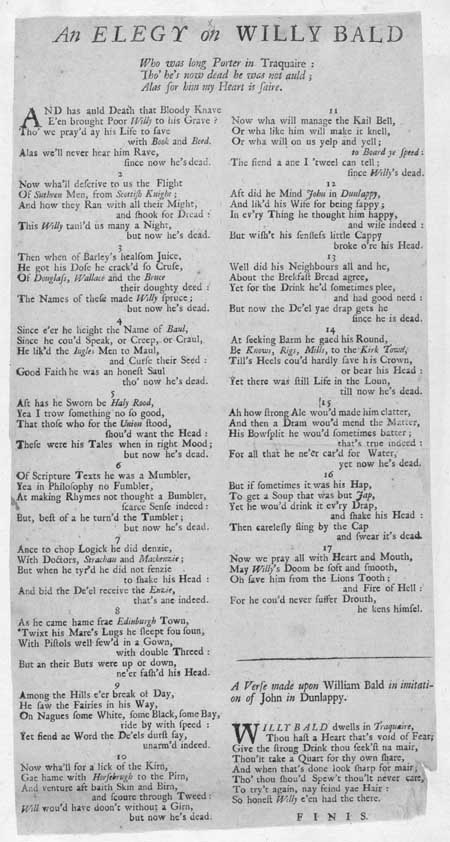Commentary
This memorial notice begins: 'An ELEGY on WILLY BALD'. The elegy itself begins: 'AND has auld Death that bloody knave / E'en brought Poor Willy to his grave? / Tho' we pray'd ay his life to save / With Book and Beed. / Alas we'll never hear him Rave / Since now he's dead.' A commemorative note below the title states that Willy Bald was a 'Porter in Traquaire'. Written in a mock-epic style that suggests it was published during the eighteenth century, this ballad is a song of mourning for a porter called Willy Bald, who lived in Traquair, Peeblesshire. The historical town of Traquair is famous for its breweries and the ballad certainly highlights the fact that Willy was fond of his drink. Indeed, the author plays on the humorous concept that Willy will suffer a terrible drought if he ends up in Hell - hence the prayer at the end. Although Willy was not of the highest social class, the ballad celebrates his self-taught erudition and free-thinking philosophy, thereby suggesting he is a man of the Scottish Enlightenment. Early ballads were dramatic or humorous narrative songs derived from folk culture that predated printing. Originally perpetuated by word of mouth, many ballads survive because they were recorded on broadsides. Musical notation was rarely printed, as tunes were usually established favourites. The term 'ballad' eventually applied more broadly to any kind of topical or popular verse.
View Transcription | Download PDF Facsimile
|


